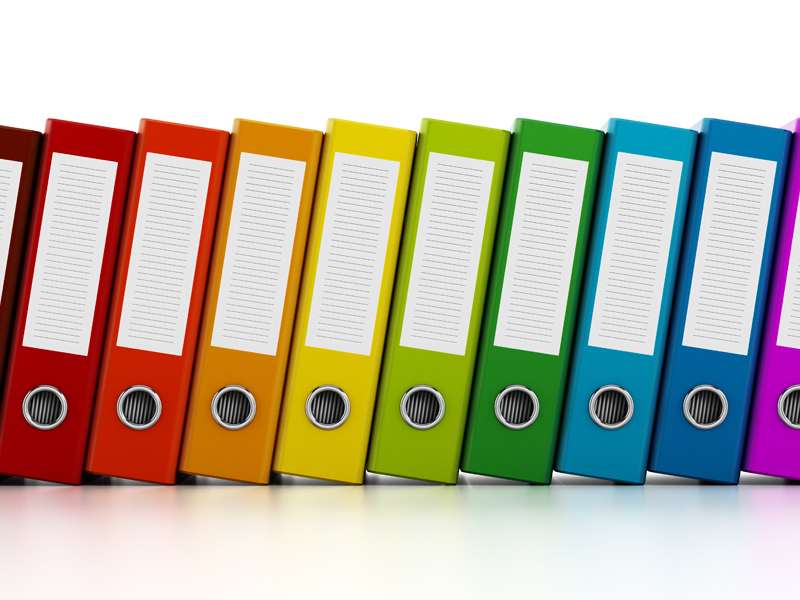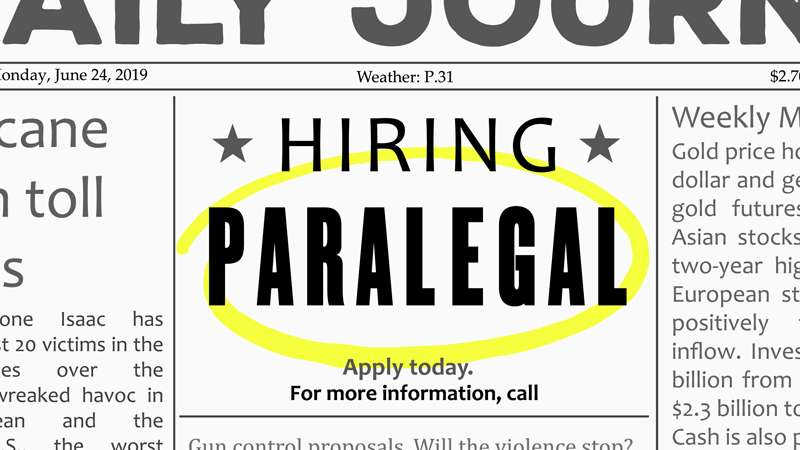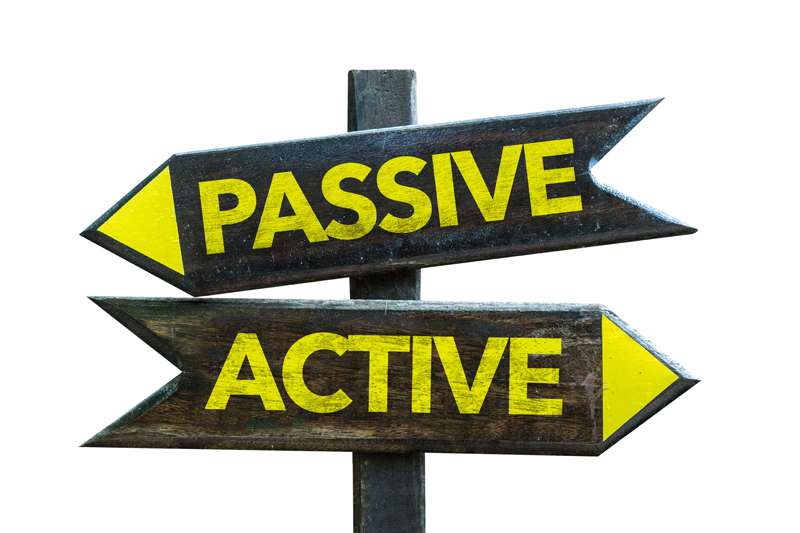
You probably take pains with your resume. You may even take pains with your cover letters. But chances are you do not take pains with your writing sample. The vast majority of law students I know act as if samples do not matter. That is a common mistake.
Writing samples matter a great deal when recruiters rank their candidates. After completing call-back interviews, I winnow down my finalists by reading their samples. I assign letter grades, using pluses and minuses, and drop those with the lowest marks.
We have lawyers working at my law firm who would not have ranked high enough to receive an offer without the boost they received from an outstanding sample. Because they turned out to be some of the best all-around lawyers we have, I know we make better hiring decisions by evaluating writing samples.
Most recruiters treat your sample as an example of your best work and research, so you should make it flawless. No rule says you have to give it to recruiters with the same errors or problems it had when you turned it into your professor or supervising lawyer.
Ask someone to review your work. If you have established some rapport with a legal writing instructor, they may be a good person to ask to look over your writing sample. If you have been fortunate enough to clerk for a skilled and friendly practitioner, you might also ask that person to review it.
Just because your legal writing samples should be your work does not mean you should not ask for help. Having someone review your work does not mean they should rewrite it. The purpose is to point out where your sample could be better. You should make the improvements.
When refining your writing sample, you need to consider several factors. First, your sample should be in plain English. Second, it should have a sound, economical, and well-organized analysis. Third, there should be no misspellings, typos, or grammatical errors.
Certain kinds of samples serve the purpose much better than others. In discussing the best possible writing sample with most employers, I find consensus on the following guidelines:
Provide Legal Writing
This may seem obvious, but I have had applicants give me written work before law school. That is not legal writing. Any non-legal writing you want to give can only supplement a simple writing sample.
Provide Persuasive Writing

A persuasive writing document allows a hiring manager to evaluate your advocacy skills. Good choices include a memorandum of points and authorities or a brief. Some kinds of analytical (as opposed to persuasive) writing are fine. For example, a bench memorandum for a judge puts a premium on practical research and writing skills. Writing that does not involve research or is scholarly but not practical is less satisfactory.
Provide Something From An Actual Or Simulated Legal Position

Except for positions in academia, most employers want something you wrote as a law clerk or extern or a law school assignment that simulates such a product. Law review and other scholarly writings done during legal writing competitions do not serve the need. Because law review articles are polished to the nth degree, the amount of time spent on them is out of all proportion to the time available in practice. And law review articles raise the question of whether editors blended in their work. For more examples and tips on preparing effective legal writing submissions, see our full Legal Writing Samples guide.
Provide Writing Samples Employers Can Readily Understand

The type of work product and the subject should be familiar. As a job applicant, your task is to convince employers you can do the kind of work their lawyers do. Pick samples with that in mind. The best writing samples match the work products written by their lawyers. If you have a sample that deals with an arcane subject, give it only to employers who understand it. If you cut your sample to a reasonable length, make sure you do not delete the necessary context. Annotate shortened legal documents by including language such as, "I have omitted Arguments III and IV." Put such annotations on a cover page, including your name and an explanation of when and for whom you wrote the product.
Provide Something Recent
Your legal skills should improve with experience. When you give hiring managers a 2-year-old sample, you might as well tell them your skills have not improved in two years. I treat the samples as measures of applicants’ current skill levels.
Provide At Least 10 Double-Spaced (or five single-spaced) Pages

Err on the side of providing something too long rather than too short. Recruiters who find your legal writing samples too long can stop reading. But when recruiters find your sample too short, it is a problem. I have had applicants give me page-and-a-half client letters. That is long enough for me to discern weak writing but not long enough to rank it among strong writing samples reliably. Short samples do not get the benefit of any doubt.
Provide Your Own Work

Recruiters want to rate you. When your legal writing samples appear on its face to be someone else’s work—for example, a memorandum of points and authorities or an appellate brief signed by a supervising lawyer—explain in your legal cover letter your part and the lawyer’s part in drafting it. If you started with a boilerplate shell, indicate what the boilerplate is and your original work. I have received samples with whole sections in common from students who clerked in the same law office. Cross out parts you did not write. Unless you excise the portions, you did not write, it is too easy to mistake someone else’s work for yours. If you have ever handed over a sample during an interview process and had to point out what you did and did not write, you wasted time and appeared unprepared. If you need to explain anything about your writing sample, do it on a cover page.
Blackout Confidential Or Sensitive Information

Some applicants thoughtlessly breach confidentiality. If you fail to excise confidential information, you taint your application. When you delete confidential information, insert fictitious material to maintain the flow of the text. When your text has gaps in it, you frustrate the reader. That can hurt your evaluation.
Avoid Lurid Subject Matter
Some applicants try to be memorable by choosing the lurid subject matter. They are remembered for the wrong quality. If your sample discusses matters that shock most people's sensibilities, find another writing sample instead of relying on shock value, depending on merit.
Do Not Put Your Writing Samples And Other Application Materials In Binders

You do not gain an edge with fluff. Legal documents like appellate briefs that are customarily bound are fine, but when you stick your samples in binders to dress them up, you create problems for recruiters who do not want to keep binders in their files.
What Do Law Firms Look For In A Writing Sample?

Depending on the industry, position, and law firm, law firms analyze samples for a legal job differently. Generally, every legal employer will be looking for tone, style, and legal writing skills, including grammatical errors, spelling, and punctuation. Even though it is often possible to learn the specific writing style of a law firm on the job, law firms may be looking to hire someone with a high level of legal writing and analyzing legal skills from the beginning.
Provide your sample when the employer asks for it. If you have not submitted a sample beforehand, take one to your interviews if you are asked for it. Although employers will accept whatever you have, you will be a stronger applicant if you prepared your best possible writing sample.
What Is A Good Legal Writing Sample?

For clear and engaging legal writing, consider using the following strategies:
- Legal Reasoning: You must demonstrate your ability to apply the law to facts and differentiate cases according to their facts through a sample. It is not best to use a case law study or a note summarizing a recently published decision because they lack legal analysis. Examples of possible writing include:
- A memorandum from your legal writing class.
- Your portion of your moot court brief. The best way to present an excerpt is to keep the statement of facts, the table of contents, and your argument, or a section thereof. You should indicate that sections have been redacted for length.
- A memorandum of law or brief that you created during an internship. Redact any information such as the client’s name or identifying information to protect privilege. You should always ask for permission from your employer first before using your work product as a sample.
- A memorandum or draft opinion you wrote for a judge during an internship. Again, you must ask for permission. Your sample should always be what you provided the judge and not the opinion itself.
- Length: Samples should range from seven to ten pages unless employers specify otherwise (some may request up to 12, in rare cases five pages). In your cover page, you may excerpt if necessary, but be sure to describe the nature of the larger document and the context of the analysis. Review it again to make sure the short version is grammatically and logically sound.
- Recent: Your sample should be recent, and reflect your best efforts.
- Practical: Recruiters are more interested in work products from internships or law clerk positions.
- Proofread: Triple-check for any typographical errors, incorrect grammar, or inappropriate citations. Otherwise, it will result in ruining your legal profession.
- Blue Book: Cite legal authorities accurately and according to the Blue Book.
- Confidentiality: It is highly recommended that you secure permission for any non-public documents if you plan to use them as examples for an essay. Also, remove any confidential or privileged information. To avoid using fictitious names, blackout the cover page's information and indicate that you did so. The judge must expressly approve your legal opinion before you submit it.
- The Employer: When choosing a sample, keep in mind your audience and whether or not the employer has specific guidelines. Pick an example that relates to your employer's industry.
- Your Work: Be sure to use a sample that you wrote yourself. Include an explanation on your cover page if it is a collaborative sample. The cover page should indicate if a professor or employer has lightly edited the sample.
- Cover Page: Include a cover page with your sample explaining what the document is about, such as whether confidential information has been changed, whether the sample is part of a larger document, and who it was written for.
What Kind Of Legal Writing Samples Should I Submit For A Paralegal Job?

When offering legal jobs, legal employers typically want to see an example of your research and writing abilities.
Those applying to be enter-level paralegals in the firm's litigation department should attach a brief, motion, or memo. You should submit an escrow trust agreement or related documents along with you in your application for a position as a corporate paralegal.
How Do You Write Like A Paralegal?

Communication is a key aspect of the paralegal profession. Writing proficiency is essential for anyone entering the field. The paralegal gathers information and prepares a wide range of legal documents to support, verify, and complete various legal transactions. They must tailor everything they draft - every correspondence they send - comprehensively and accurately that leaves no room for misrepresentation.
Law firms typically request a written test from paralegal candidates during the interview process. The value of paralegal writing skills is high among law firms. A writing test usually measures candidate writing abilities:
- Format sentences and paragraphs clearly and concisely.
- Follow grammar and punctuation rules.
- In a set time frame, convert thoughts into sentences.
Listed below are the five most important tips for paralegals when it comes to legal writing:
Present Your Position in Active Voice

There are a lot of great tutorials on the web that can help you learn how to write in an active voice. Try to avoid using these "be" verbs in your writing:
- Have
- Has
- Had
- Is
- Are
- Be
- Been
- Was
- Will
- Were
You may find it difficult to do so. If you wish to eliminate these words (and their counterparts, such as "having"), you will have to spend some time thinking about it. The process does help you write, though.
Minimize the Opposition with Passive Writing
It may be your role as a paralegal to draft firm-wide responses. The response must be reviewed, approved, and submitted by the attorney who oversees you. It is rare for a client to be held in good hands. This does not mean that your firm will fail to represent the client. The only necessary thing is to admit sometimes that your client has less than pleasing characteristics. Responses to the opposition must also address their claims. To achieve success, you must rely on those very verbs I instructed you to avoid using. This is because you want to minimize the power of a claim asserted by the opposition and minimize the impact of less-than-flattering information. When information is presented passively, we do not remember it as well. Unless the argument is strong, passive writing is easier to gloss over.
Use Short Sentences and Paragraphs
A paralegal (or an attorney, for that matter) usually prides themselves on their ability to research and write a convincing argument. It is not uncommon to find long, paragraphed pleadings, responses, and opinions on Lexis, Westlaw, or other legal research sites. The length of your paragraphs and sentences makes it difficult for the reader. Your reader will find it easier to stop reading when you use short sentences and paragraphs.
Legal Research is Circular
Legal writing is frequently questioned as to "where does the research end, and the writing begin?" There is never an end to research, but you must learn how to do it. Many of us want our briefs back the second we hand them in. We immediately think of twelve other things we could have done as we drive home. We suffer from the "add more syndrome."
Take Your Audience into Account
Can you explain the same complicated concept to an adult and a child alike? It is impossible. A 50-year-old should not be patronized, and talking over the head of a child would not be wise. To ensure that the intended recipient will read the sample, you must consider the intended purpose and the recipient's professional experience in legal concepts. Although Clients may not understand Latin terms, they can make you look smart because it is the correct term. Generally, the client does not benefit from it. It is important to explain everything so that the reader understands it.
About Harrison Barnes
No legal recruiter in the United States has placed more attorneys at top law firms across every practice area than Harrison Barnes. His unmatched expertise, industry connections, and proven placement strategies have made him the most influential legal career advisor for attorneys seeking success in Big Law, elite boutiques, mid-sized firms, small firms, firms in the largest and smallest markets, and in over 350 separate practice areas.
A Reach Unlike Any Other Legal Recruiter
Most legal recruiters focus only on placing attorneys in large markets or specific practice areas, but Harrison places attorneys at all levels, in all practice areas, and in all locations-from the most prestigious firms in New York, Los Angeles, and Washington, D.C., to small and mid-sized firms in rural markets. Every week, he successfully places attorneys not only in high-demand practice areas like corporate and litigation but also in niche and less commonly recruited areas such as:
- Immigration Law
- Workers Compensation
- Insurance
- Family Law
- Trust and Estate
- Municipal law
- And many more...
This breadth of placements is unheard of in the legal recruiting industry and is a testament to his extraordinary ability to connect attorneys with the right firms, regardless of market size or practice area.
Proven Success at All Levels
With over 25 years of experience, Harrison has successfully placed attorneys at over 1,000 law firms, including:
- Top Am Law 100 firms such including Sullivan and Cromwell, and almost every AmLaw 100 and AmLaw 200 law firm.
- Elite boutique firms with specialized practices
- Mid-sized firms looking to expand their practice areas
- Growing firms in small and rural markets
He has also placed hundreds of law firm partners and has worked on firm and practice area mergers, helping law firms strategically grow their teams.
Unmatched Commitment to Attorney Success - The Story of BCG Attorney Search
Harrison Barnes is not just the most effective legal recruiter in the country, he is also the founder of BCG Attorney Search, a recruiting powerhouse that has helped thousands of attorneys transform their careers. His vision for BCG goes beyond just job placement; it is built on a mission to provide attorneys with opportunities they would never have access to otherwise. Unlike traditional recruiting firms, BCG Attorney Search operates as a career partner, not just a placement service. The firm's unparalleled resources, including a team of over 150 employees, enable it to offer customized job searches, direct outreach to firms, and market intelligence that no other legal recruiting service provides. Attorneys working with Harrison and BCG gain access to hidden opportunities, real-time insights on firm hiring trends, and guidance from a team that truly understands the legal market. You can read more about how BCG Attorney Search revolutionizes legal recruiting here: The Story of BCG Attorney Search and What We Do for You.
The Most Trusted Career Advisor for Attorneys
Harrison's legal career insights are the most widely followed in the profession.
- His articles on BCG Search alone are read by over 150,000 attorneys per month, making his guidance the most sought-after in the legal field. Read his latest insights here.
- He has conducted hundreds of hours of career development webinars, available here: Harrison Barnes Webinar Replays.
- His placement success is unmatched-see examples here: Harrison Barnes' Attorney Placements.
- He has created numerous comprehensive career development courses, including BigLaw Breakthrough, designed to help attorneys land positions at elite law firms.
Submit Your Resume to Work with Harrison Barnes
If you are serious about advancing your legal career and want access to the most sought-after law firm opportunities, Harrison Barnes is the most powerful recruiter to have on your side.
Submit your resume today to start working with him: Submit Resume Here
With an unmatched track record of success, a vast team of over 150 dedicated employees, and a reach into every market and practice area, Harrison Barnes is the recruiter who makes career transformations happen and has the talent and resources behind him to make this happen.
A Relentless Commitment to Attorney Success
Unlike most recruiters who work with only a narrow subset of attorneys, Harrison Barnes works with lawyers at all stages of their careers, from junior associates to senior partners, in every practice area imaginable. His placements are not limited to only those with "elite" credentials-he has helped thousands of attorneys, including those who thought it was impossible to move firms, find their next great opportunity.
Harrison's work is backed by a team of over 150 professionals who work around the clock to uncover hidden job opportunities at law firms across the country. His team:
- Finds and creates job openings that aren't publicly listed, giving attorneys access to exclusive opportunities.
- Works closely with candidates to ensure their resumes and applications stand out.
- Provides ongoing guidance and career coaching to help attorneys navigate interviews, negotiations, and transitions successfully.
This level of dedicated support is unmatched in the legal recruiting industry.
A Legal Recruiter Who Changes Lives
Harrison believes that every attorney-no matter their background, law school, or previous experience-has the potential to find success in the right law firm environment. Many attorneys come to him feeling stuck in their careers, underpaid, or unsure of their next steps. Through his unique ability to identify the right opportunities, he helps attorneys transform their careers in ways they never thought possible.
He has worked with:
- Attorneys making below-market salaries who went on to double or triple their earnings at new firms.
- Senior attorneys who believed they were "too experienced" to make a move and found better roles with firms eager for their expertise.
- Attorneys in small or remote markets who assumed they had no options-only to be placed at strong firms they never knew existed.
- Partners looking for a better platform or more autonomy who successfully transitioned to firms where they could grow their practice.
For attorneys who think their options are limited, Harrison Barnes has proven time and time again that opportunities exist-often in places they never expected.
Submit Your Resume Today - Start Your Career Transformation
If you want to explore new career opportunities, Harrison Barnes and BCG Attorney Search are your best resources. Whether you are looking for a BigLaw position, a boutique firm, or a move to a better work environment, Harrison's expertise will help you take control of your future.
Submit Your Resume Here to get started with Harrison Barnes today.
Harrison's reach, experience, and proven results make him the best legal recruiter in the industry. Don't settle for an average recruiter-work with the one who has changed the careers of thousands of attorneys and can do the same for you.
About BCG Attorney Search
BCG Attorney Search matches attorneys and law firms with unparalleled expertise and drive, while achieving results. Known globally for its success in locating and placing attorneys in law firms of all sizes, BCG Attorney Search has placed thousands of attorneys in law firms in thousands of different law firms around the country. Unlike other legal placement firms, BCG Attorney Search brings massive resources of over 150 employees to its placement efforts locating positions and opportunities its competitors simply cannot. Every legal recruiter at BCG Attorney Search is a former successful attorney who attended a top law school, worked in top law firms and brought massive drive and commitment to their work. BCG Attorney Search legal recruiters take your legal career seriously and understand attorneys. For more information, please visit www.BCGSearch.com.
Harrison Barnes does a weekly free webinar with live Q&A for attorneys and law students each Wednesday at 10:00 am PST. You can attend anonymously and ask questions about your career, this article, or any other legal career-related topics. You can sign up for the weekly webinar here: Register on Zoom
Harrison also does a weekly free webinar with live Q&A for law firms, companies, and others who hire attorneys each Wednesday at 10:00 am PST. You can sign up for the weekly webinar here: Register on Zoom
You can browse a list of past webinars here: Webinar Replays
You can also listen to Harrison Barnes Podcasts here: Attorney Career Advice Podcasts
You can also read Harrison Barnes' articles and books here: Harrison's Perspectives
Harrison Barnes is the legal profession's mentor and may be the only person in your legal career who will tell you why you are not reaching your full potential and what you really need to do to grow as an attorney--regardless of how much it hurts. If you prefer truth to stagnation, growth to comfort, and actionable ideas instead of fluffy concepts, you and Harrison will get along just fine. If, however, you want to stay where you are, talk about your past successes, and feel comfortable, Harrison is not for you.
Truly great mentors are like parents, doctors, therapists, spiritual figures, and others because in order to help you they need to expose you to pain and expose your weaknesses. But suppose you act on the advice and pain created by a mentor. In that case, you will become better: a better attorney, better employees, a better boss, know where you are going, and appreciate where you have been--you will hopefully also become a happier and better person. As you learn from Harrison, he hopes he will become your mentor.
To read more career and life advice articles visit Harrison's personal blog.



